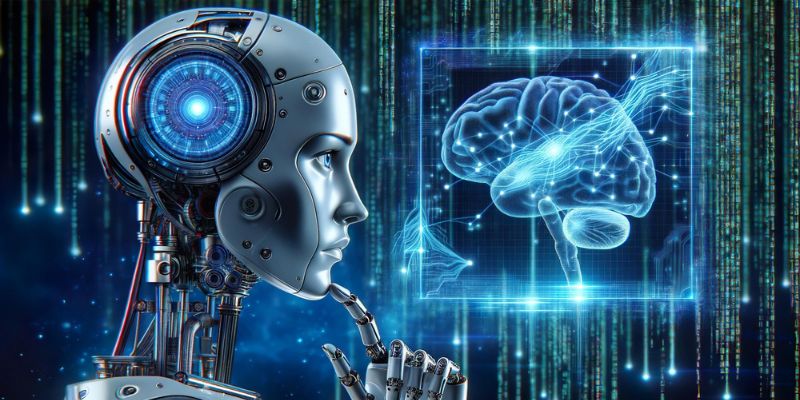What Skills Are Needed to Build a Successful Career in AI?

Table of Contents
ToggleArtificial Intelligence has become one of the most dynamic and rapidly growing fields of technology. From transforming business operations to revolutionizing healthcare, AI is no longer just an academic pursuit but a practical force shaping industries across the globe. For individuals aspiring to enter this competitive domain, acquiring the right skills is essential. These skills go beyond technical knowledge, combining analytical thinking, creativity, and ethical awareness. Enrolling in an Artificial Intelligence Course in Chennai provides a structured pathway to mastering these areas while preparing learners for real-world challenges.
Importance of Foundational Knowledge
Every AI professional must begin with a solid foundation in computer science fundamentals. Concepts such as algorithms, data structures, and computational theory form the backbone of problem solving in AI applications. A deep understanding of mathematics, especially linear algebra, probability, and statistics, is equally important as these areas are directly applied in training and evaluating machine learning models. Students who start with strong fundamentals are better equipped to understand advanced topics such as neural networks, natural language processing, and reinforcement learning. Training institutes focus on strengthening these basics, ensuring that learners develop a confident grasp of the underlying logic that powers AI systems.
Mastery of Programming Languages
Proficiency in programming languages is indispensable for building a career in AI. Python has become the most popular language in the field because of its simplicity and rich ecosystem of libraries such as TensorFlow, PyTorch, and Scikit-learn. Mastering Python allows professionals to implement machine learning models, process data efficiently, and deploy AI applications. While Python dominates the AI landscape, familiarity with other languages such as R, Java, and C++ adds versatility. These languages are useful in specific contexts, for example, R in statistical analysis or C++ in performance intensive applications. A structured Python Course in Chennai ensures learners gain practical exposure to these languages, helping them build applications that meet industry demands.
Data Handling and Preprocessing Skills
Data is the fuel that drives AI. However, raw data is often messy, incomplete, and unstructured. Professionals must be skilled in cleaning, preprocessing, and transforming data into formats suitable for analysis. This involves handling missing values, reducing noise, and ensuring the quality of datasets. Data handling also requires knowledge of SQL for structured data and tools like Pandas or NumPy for numerical manipulation. Learners who excel in these areas can create accurate and efficient models because the performance of AI systems is directly linked to the quality of the data they process.
Expertise in Machine Learning and Deep Learning
Machine learning lies at the heart of AI. Professionals must understand supervised, unsupervised, and reinforcement learning techniques. Knowledge of algorithms such as decision trees, support vector machines, and clustering methods helps in solving real world problems. Deep learning, which focuses on artificial neural networks, is another critical area. It powers advanced technologies such as computer vision and speech recognition. Mastering architectures like convolutional neural networks and recurrent neural networks enables professionals to develop applications that mimic human abilities. Practical exposure to these models during training builds confidence in applying them to diverse domains.
Knowledge of Natural Language Processing
With the rise of conversational AI tools and virtual assistants, natural language processing (NLP) has become a vital skill. NLP enables machines to understand, interpret, and generate human language. Professionals must learn how to build models that handle tasks such as sentiment analysis, machine translation, and text summarization. NLP is one of the fastest evolving branches of AI, and staying updated with the latest advancements is crucial. By working on projects that involve real world text data, learners can build practical expertise that adds immense value to their career prospects.
Problem Solving and Analytical Thinking
Technical skills alone are not enough. AI professionals must cultivate the ability to analyze problems critically and design creative solutions. Problem solving involves breaking down complex challenges into smaller tasks, experimenting with multiple approaches, and refining models based on outcomes. Analytical thinking also includes evaluating the ethical implications of AI systems. Professionals must learn to question whether a solution is fair, transparent, and beneficial to society. Enrolling in a Data Analytics Course in Chennai can further strengthen these skills by combining technical expertise with critical thinking, ensuring learners are well-prepared for real-world challenges that demand both innovation and responsibility.
Cloud Platforms and Deployment Skills
AI solutions must often be deployed at scale, making cloud computing platforms such as AWS, Azure, and Google Cloud essential for professionals. Skills in deploying AI models on these platforms ensure that solutions are accessible, reliable, and efficient. In addition to deployment, knowledge of containerization tools such as Docker and Kubernetes enhances the ability to manage applications effectively. Training institutes introduce learners to cloud integration, helping them bridge the gap between theoretical knowledge and practical industry requirements.
Continuous Learning and Research Orientation
Artificial Intelligence is a constantly evolving field. New algorithms, tools, and applications emerge regularly, making continuous learning a necessity. Professionals must remain curious, explore academic research, and keep pace with the latest industry trends. Developing a research mindset allows learners to think beyond current tools and create innovative solutions. Whether by reading scholarly articles, participating in conferences, or contributing to open source projects, professionals who adopt a habit of continuous learning remain competitive and relevant.
Role of Soft Skills in AI Careers
While technical expertise dominates the conversation, soft skills are equally significant. Communication skills enable professionals to explain complex AI solutions to non-technical stakeholders. Teamwork and collaboration are essential when working in multidisciplinary environments. Adaptability ensures that professionals can thrive even as technologies shift rapidly. An Generative AI Course in Chennai focuses on holistic development, integrating both technical and soft skills. This ensures that learners not only build advanced applications but also present and implement their solutions effectively in professional contexts.
A successful career in Artificial Intelligence requires a combination of strong fundamentals, programming proficiency, data handling expertise, and deep learning knowledge. Beyond technical abilities, problem solving, ethical awareness, and continuous learning shape well-rounded professionals who can thrive in the field. With industries across the globe increasingly adopting AI solutions, opportunities are abundant for those equipped with the right skills.
- Arts & Style (98)
- Automobile (283)
- Business (5,518)
- Business and Entrepreneurship (162)
- Career Development (54)
- Climate & Environment (26)
- Creative (31)
- Culture (1,530)
- Beauty (276)
- Skincare (239)
- Cultural Studies (74)
- Digital Life (72)
- Energy Healing (31)
- Fashion (1,017)
- Clothing (688)
- Fashion Design (232)
- Philosophy (7)
- Morality (6)
- Religion (17)
- Sports (116)
- Beauty (276)
- Digital Marketing (331)
- DIY and Crafts (13)
- Economics (8)
- Education (1,260)
- Entertainment (195)
- Faith & Spiritual (10)
- Fashion and Beauty (152)
- Finance and Money Management (204)
- Fitness and Exercise (32)
- Food and Drink (169)
- Game (139)
- Health and Wellness (1,083)
- Home and Garden (378)
- Law (141)
- Lifestyle (1,349)
- Health (672)
- Home (380)
- Architecture (94)
- Interior Design (215)
- Rental Property (27)
- Pets (75)
- Relationships (70)
- Restaurants (19)
- Literature (7)
- Media (267)
- Packaging (41)
- Politics (1)
- Real Estate (254)
- Science and Nature (14)
- SEO (134)
- Social Media Marketing (51)
- Software Development (216)
- Sports and Fitness (44)
- Technology (832)
- Artificial Intelligence (238)
- Blockchain (60)
- Data Science (113)
- Gadgets (144)
- Security (139)
- Transportation (106)
- Travel & Tourism (736)
- Uncategorized (1,798)
- World (62)
- International (59)
- How to Prepare for a Jet Ski Ride in Dubai

- Choosing the Right Home Health Agency in Port Charlotte, FL: A Complete Guide

- Borden Ventures: Transforming the Future of Television with Smart Investor Partnerships
- Enhancing Sperm Quality: Lifestyle and Dietary Interventions

- Top Python Libraries for AI Projects You Should Know

7 Reasons Why Online Quran Learning Is The Right Choice

Why Interior Design Classes in Bangalore Are Perfect for Working Professionals?

Management Assignment Help: The Rise of a Student

What Are the Cost Optimization Strategies for Businesses Using AWS?

What Are the Cost Optimization Strategies for Businesses Using AWS?

Ultimate Guide to UI/UX Best Practices

How Does Generative AI Support Creative Industries?
